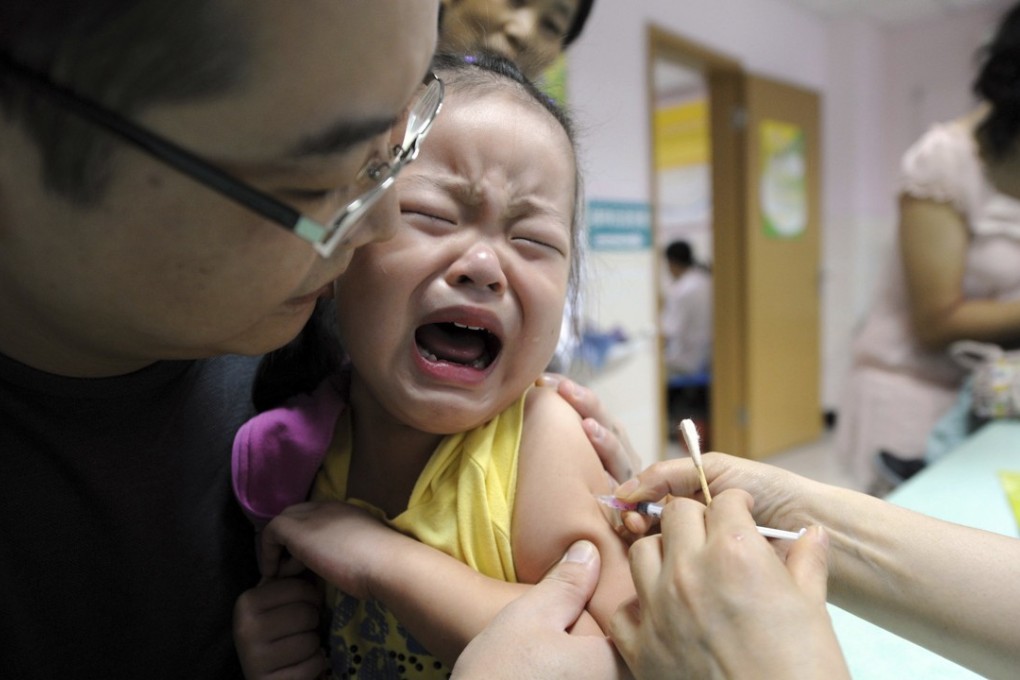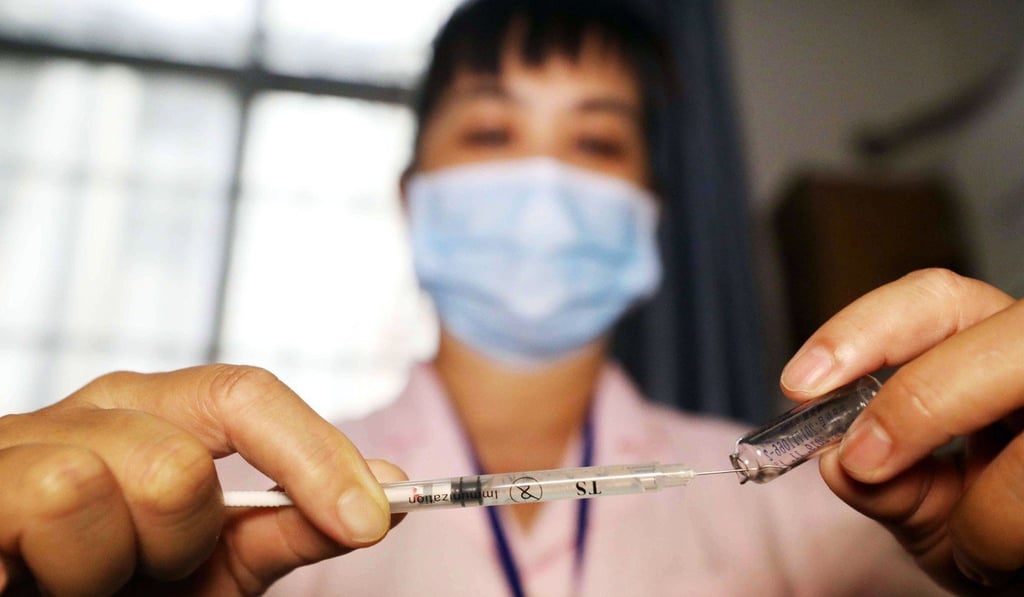Fake data – the disease afflicting China’s vaccine system
Disease numbers are being swept under the carpet and false expiry dates slapped on injections, industry insiders say

China’s vaccine production and distribution system is beset by fake data and fraudulent labelling, raising the risk of outbreaks of highly transmissible diseases, according to industry insiders and health experts.
The assessment comes after Changchun Changsheng Bio-technology last week became the latest Chinese pharmaceutical company to embroiled in a vaccine scandal.
According to the State Drug Administration, Changsheng Bio-tech forged data on the effectiveness of its rabies vaccines and sold substandard DPT (diphtheria, whooping cough and tetanus) shots for children as young as three months old.
The revelations undermine China’s claims to have established a world-class “whole-life cycle regulation system”, controlling the research, production, distribution and administration of vaccines.
Compulsory vaccines such as DPT are given to children under a state-sponsored health programme through hospitals and the country’s 3,500 or so local disease control centres for free, with domestic producers supplying about 95 per cent of the injections. Optional vaccines such as hepatitis B and influenza shots are provided mainly on a commercial basis.

While there are no official figures or reliable independent assessments about the full extent of the problems, past cases have pointed to fraud throughout the vaccine supply chain in China, from laboratories to vaccination centres.